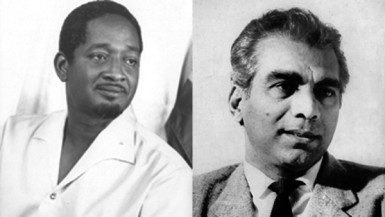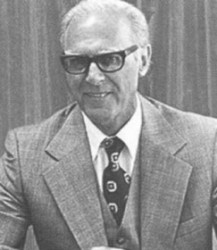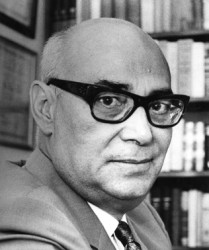In 1964 Venezuela wanted Forbes Burnham and Peter D’Aguiar to attempt to overthrow the Cheddi Jagan administration here with the assistance of men trained in Venezuela, and then form a “Revolution-ary Government.” At the same time, Cheddi and Janet Jagan were to be kidnapped and sent to the neighbouring state.
This is according to a document numbered 523 from Volume XXXI (South and Central America; Mexico) released by the Office of the Historian of the US State Department some years ago. Stabroek News was alerted to it by a correspondent to this newspaper, Mr M Maxwell.
It concerns the period two years prior to Independence, when Dr Jagan was in government as premier with responsibility for internal affairs, although the British were still the colonial authority.

The document dated July 10, 1964, constitutes an action memorandum from the US Assistant Secretary of State for European and Canadian Affairs Tyler to Secretary of State Dean Rusk, who tells his superior that according to a reliable American source Vene-zuela’s Foreign Minister Ignacio Irribaren Borges wanted to talk to him privately about Venezuela’s preparedness to support the overthrow of Cheddi Jagan, and that it was seeking US backing for this venture.
The approach by Irribaren to the Americans was to take place during the Latin American Foreign Ministers Confer-ence, and a footnote from the Office of the Historian says that while it is recorded that Rusk met him, there was no evidence to indicate whether he raised “the Venezuelan proposal to intervene in British Guiana.”
Tyler tells Rusk that the US Ambassador in Caracas has found out from Venezuela’s Minister of the Interior that Venezuela would give financial support to Burnham when the time arrived for Jagan’s overthrow, and he goes on to write:
“A report from Georgetown advises that a person with good contacts in Venezuela is urging Burnham and D’Aguiar to form a ‘Revolutionary Government’; attempt a coup with the assistance of 100 trained men who will have had 30 days special training in Venezuela, and at the same time Cheddi and Janet Jagan will be kidnapped and taken to Venezuela.”
The Americans, it seems, were not at all disposed to give backing to this plan, the Assistant Secretary of State advising his boss: “You may wish to urge restraint on the Venezuelans, pointing out that plans are underway to seek a political resolution in BG through the democratic process of a Proportional Representa-tion election. We hope that nothing will happen to impede this plan and we cannot support the Venezuelans even though we share their hope that someone other than Jagan will reach the top in British Guiana.”


In the general election held in December 1964 in what was then British Guiana, no party obtained an overall majority, although Jagan’s PPP did secure the largest number of votes.
A coalition between Burnham’s PNC and Peter D’Aguiar’s United Force subsequent to the poll, however, gave those two parties an overall majority, and they went on to form the government.
At the time the memorandum was written, Raul Leoni was President of Venezuela, having succeeded Romulo Betancourt, who two years earlier had rejected the 1899 Paris Award which settled the boundary between Venezuela and Guyana.
In 1968 Leoni was to issue what became known as the Leoni Decree, claiming a nine-mile wide strip of Guyana’s sea space off the Essequibo coast.







